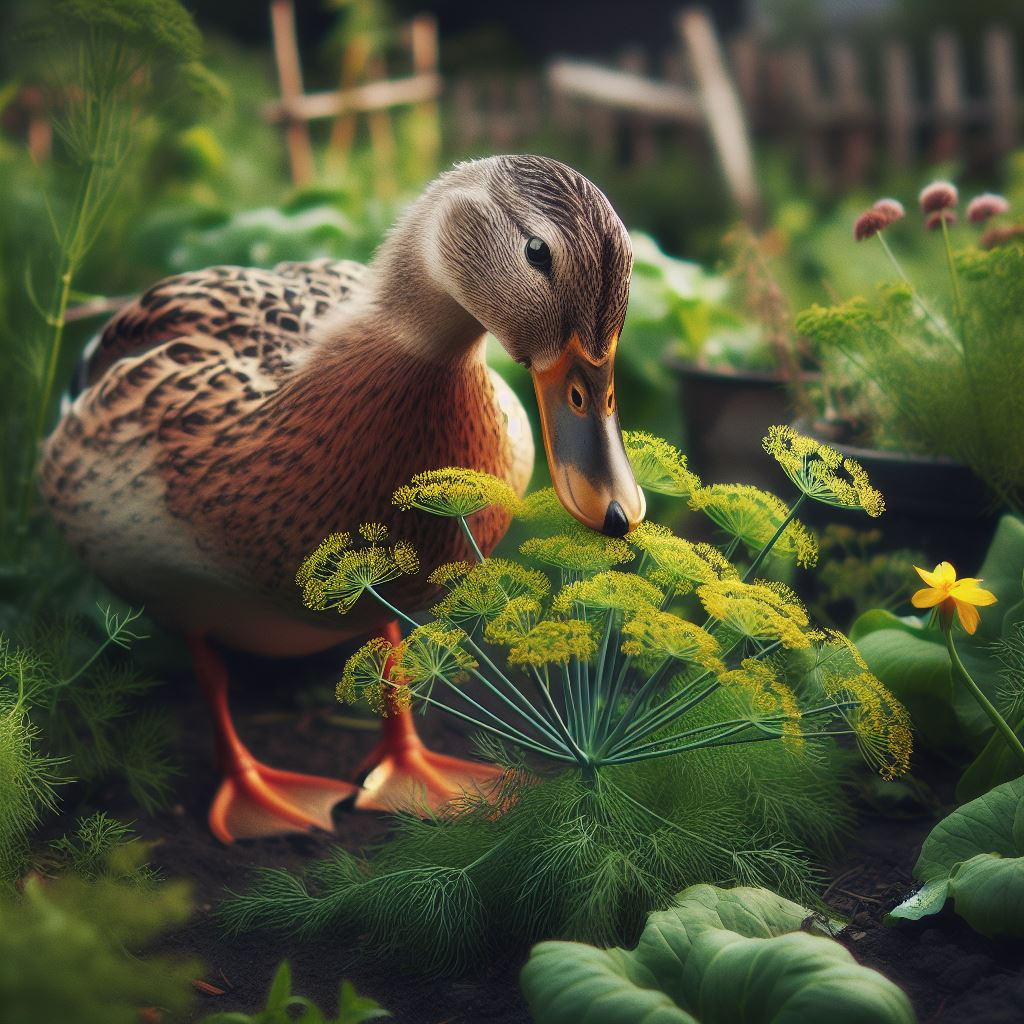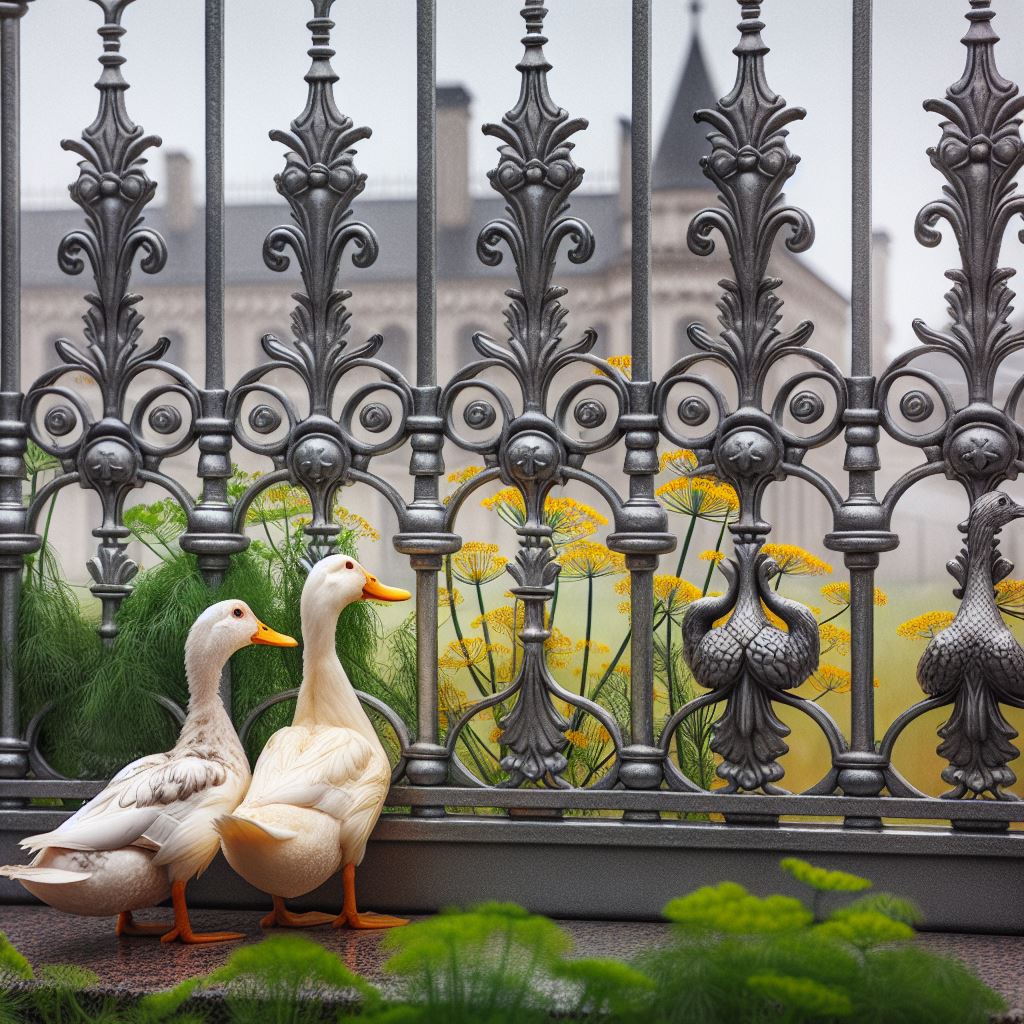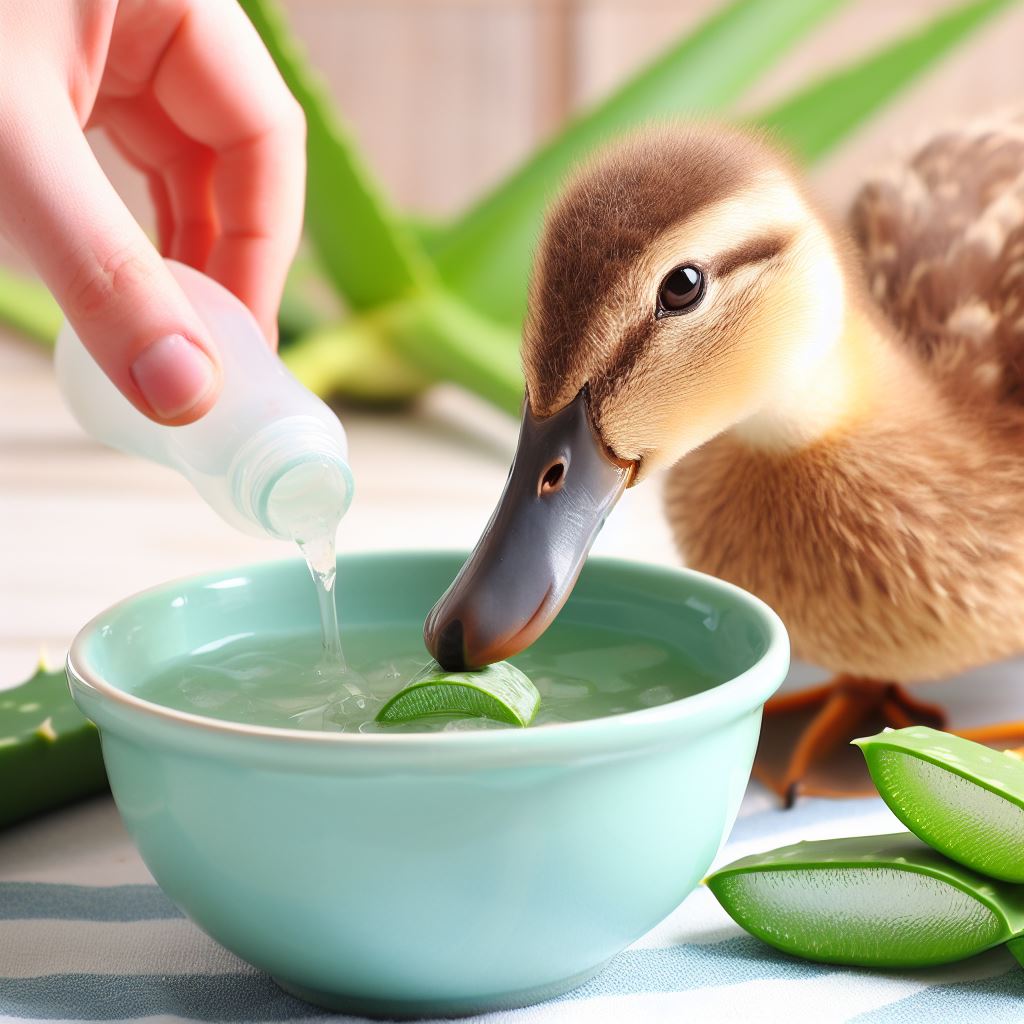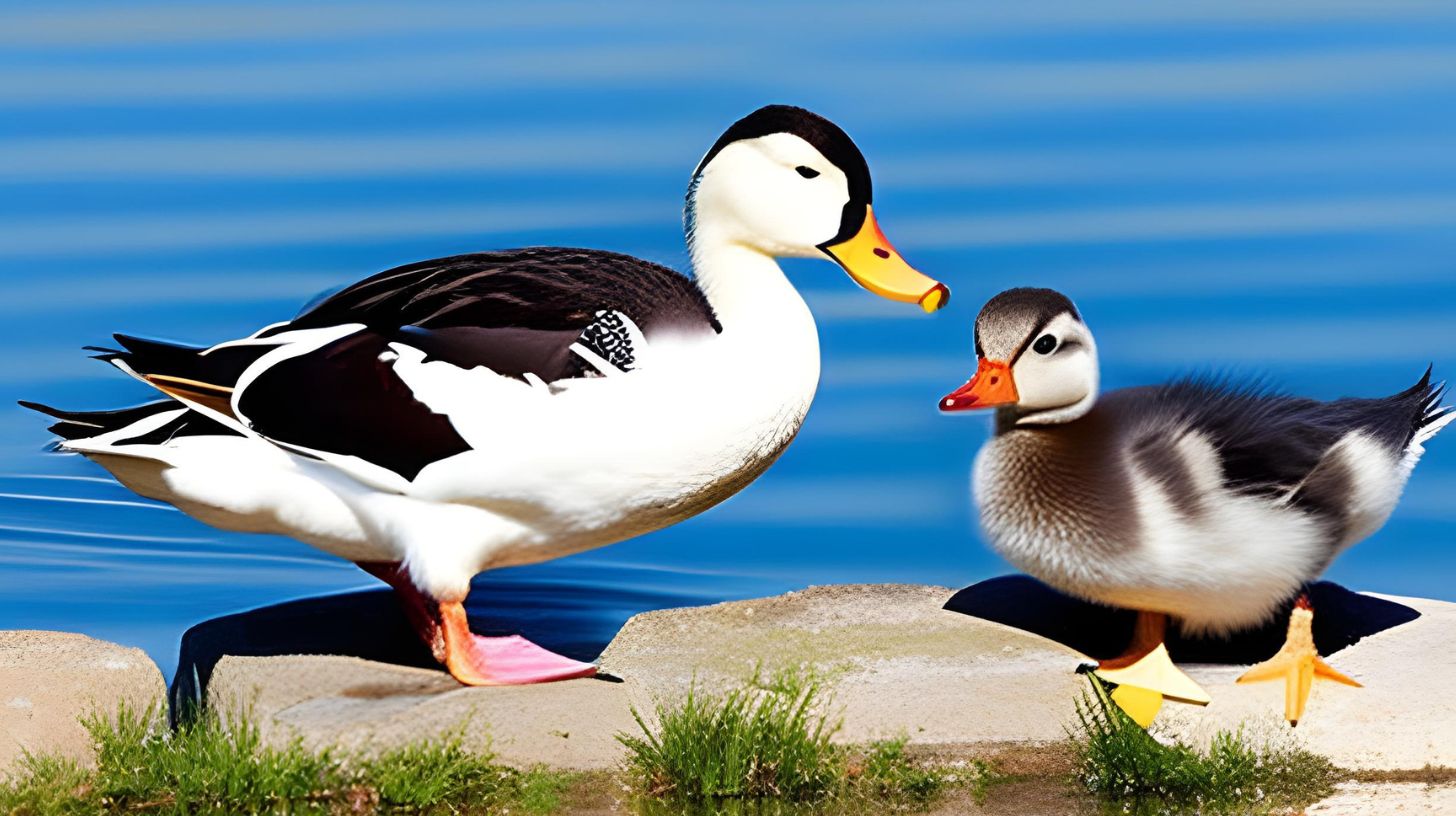Can Ducks Eat Dill? Clearing Up Confusion on Safety

Table of content:
- The Benefits and Risks of Feeding Ducks Garden Herbs
- Evaluating the Safety of Common Herbs for Ducks
- The Benefits and Safety Concerns of Feeding Ducks Dill
- Feeding Recommendations for Ducks That Promote Safety
- FAQs About Can Ducks Eat Dill
- Should I limit certain herbs to just egg-laying ducks?
- Is it necessary to rinse herb plants if grazing near treated lawns?
- How often can I offer my ducks fresh dill without issues?
- Which part of dill is safest to allow my ducks to forage – leaves, seeds or flowers?
- Can I mix chopped dill foliage into commercial waterfowl feed rations?
Dill is a popular herb in many culinary dishes and home gardens. With its feathery green foliage and aromatic seeds, dill acts as an attractive, useful plant. But can ducks eat dill safely too? As livestock animals that often freely range and forage, ducks consume a diverse diet.
Many duck species thrive with access to fresh greens, produce, insects, grains and more through grazing and foraging. Different types of domestic ducks include:
- Mallard – The most common domestic duck. Medium-sized and hardy.
- Muscovy – A large duck species with unique facial features.
- Call – Small domestic ducks are often kept as pets.
- Wood – Attractive, medium-sized ducks that thrive in wooded areas with access to water.
Ducks require balanced nutrition from quality proteins, complex carbohydrates, vitamins, minerals and fats. As foragers, they evolved by eating a diverse combination of:
- Aquatic plants
- Insects
- Grains
- Seeds
- Fruits
This natural nutritional diversity is key for backyard flocks as well, rather than simply feeding commercial duck feed alone.
Quality pasture area and freshwater access allow ducks to source their insects, plants and seeds through foraging behaviors. This opportunity aligns well with ducks’ natural behaviors and provides nutritional variety critical for good health.
 The Benefits and Risks of Feeding Ducks Garden Herbs
The Benefits and Risks of Feeding Ducks Garden Herbs
Herb gardens serve many purposes beyond just human enjoyment; parsley, mint, oregano and other herbs often bolster flower beds while providing ingredients for recipes. Ducks enjoy fresh herbs as well. But are there benefits or risks to allowing ducks access?
Some key considerations around feeding herbs to ducks include:
| Benefit | Risk |
|---|---|
| Herbs provide nutritional variety and micronutrients like antioxidants. | Some herbs carry toxicity risks to livestock when consumed in excess. Monitoring intake levels is crucial. |
| Fresh herbs bolster duck health through antimicrobial properties that discourage bad bacteria. | Ducks overgrazing an herb garden can damage plants. Fencing off landscaping is important. |
| Herb foliage aligns with ducks‟ natural foraging instincts. | Consumption rate needs consideration depending on flock size versus garden herb production. |
With smart management of herb access, duck owners can safely provide small amounts of certain herbs. But which herbs are cut?
Evaluating the Safety of Common Herbs for Ducks
Many common culinary herbs provide good nutrition and bioactive compounds. But herbs also carry alkaloids, oils and compounds that become toxic over certain thresholds. When deciding what a backyard flock can forage, use this toxicity gauge:
| Toxicity Level | Description | Example Herbs |
|---|---|---|
| Non-Toxic | Considered safe in small to moderate portions | Mint, thyme, rosemary |
| Low Toxicity | Safe in very limited portions | Dill, parsley, oregano, basil |
| Moderate toxicity | Should not constitute regular feed | Sage, lemon balm |
| High Toxicity | Unsafe for duck consumption | Wintergreen, foxglove, hemlock |
With such variation in safety and potency, refer to toxicity tables, veterinarian guidelines and start slowly when introducing new plants. Certain herbs classed as unsafe for ducks still carry benefits when used correctly.
The Benefits and Safety Concerns of Feeding Ducks Dill
Dill’s delicate, fern-like leaves complement many dishes. But does this iconic herb’s safety profile allow duck consumption too? Dill lies in the low toxicity group, meaning controlled access presents some benefits.
The potential benefits of dill for duck health include:
- Nutrient density – Dill contains vitamin A, calcium, iron and magnesium critical for duck development and egg production. Dill seeds also provide healthy fats and protein.
- Bioactive Support – As part of the carrot family, dill contains carotenoid antioxidants that reduce inflammation and cellular damage. The antibacterial oils in dill also support gut and immune health.
- Foraging fulfillment – Allowing ducks to graze fresh dill satisfies natural foraging urges and provides nutritional variety essential to wellbeing. This opportunity prevents boredom while supplementing commercial feed.
However, limitations exist on dill’s safety as large amounts of foliage or seeds can accumulate toxicity.
Potential safety issues with overfeeding ducks dill include:
- Photosensitivity – Bioactive compounds like furanocoumarins in dill can cause skin irritation and damage when consumed in excessive amounts. Too much dill may sensitize skin to sunlight damage as well. Monitoring grazing levels prevents overload.
- Gastrointestinal issues – While the antimicrobial oils benefit gut flora, overconsumption causes irritation, diarrhea or vomiting. Prevent overgrazing and removal of plants down to bare roots.
- Nutritional ratios – As with any treat, dill should not overwhelm balanced nutritional intake. Over 10% of total food intake can cause toxicity signs like appetite loss, lethargy or weakness. Track all additional feeds beyond the primary ratio.
With smart precautions, dill makes an excellent supplemental feed in moderation. But what feeding guidelines help balance benefits and risks?
Feeding Recommendations for Ducks That Promote Safety
Offering ducks a chance to graze fresh dill allows natural foraging that supports health. But improperly managing these feeding opportunities loses benefits and threatens wellbeing instead. Use these tips for integrating dill into a duck feeding plan safely:
Graze, Don’t Gorge
Allow ducks brief supervised grazing sessions on dill rather than unlimited access. Pull plants out by the roots for longer supplemental feeding after grazing.
Track Overall Diet
Document ratios of commercial feed, produce treats, foraged plants and grains. Ensure dill and other foliage stay under 10% of total intake.
Prevent Overexposure
Rotating enclosed grazing areas prevents decimating plants down to bare soil and also avoids photosensitivity issues in sunlight.
Look for Symptoms
Monitor all birds for signs of toxicity like skin redness, irritability, appetite changes or diarrhea. Adjust or discontinue herbs at the first issues noticed.
Ask the Experts
Consult veterinarians, agricultural extensions or herd health specialists about ideal duck nutrition. Report types and amounts of additional feeds for the best advice.
With attention to balancing natural behaviors and nutritional needs, herbs like dill, parsley and mint make excellent supplemental treats. But improper management loses benefits and threatens flock health instead. By following sound feeding guidelines, dill and other herbs contribute to duck wellbeing in a small garden oasis without safety risks.
FAQs About Can Ducks Eat Dill
New duck owners often have questions about the safety of their small farm or backyard hobby. Here are answers to some top inquiries about feeding ducks fresh herbs like dill.
Should I limit certain herbs to just egg-laying ducks?
Feeding a small amount of nutrient-dense herbs benefits all ducks in moderation. However, ducks producing eggs to harvest or hatch have higher calcium needs during peak production seasons. Supplementing layers with extra calciferous plants like parsley, dandelion or chard supports strong eggshell development.
Is it necessary to rinse herb plants if grazing near treated lawns?
Always offer ducks untreated foliage and plants whenever possible. If landscaping or neighbors use chemical applications on lawns, thoroughly rinse any grazed plant material first. Prevent contact with any potentially toxic persistent herbicides, fungicides or insecticides to stay safe.
How often can I offer my ducks fresh dill without issues?
Feed small bunches of dill or other herbs just 2-3 times a week maximum as part of a balanced diet. Around 1/2 cup of fresh dill foliage or seeds per adult duck weekly stays within a safe threshold for most standard sized breeds. Time grazing sessions for young plants rather than overmature or flowering dill going to seed.
Which part of dill is safest to allow my ducks to forage – leaves, seeds or flowers?
Both dill’s fern-like leaves and its mature seeds provide nutrition and bioactive compounds that support duck health. However, the small yellow flowers attract more insect pollinators important to local ecosystems. Allow blooms to develop fully before cutting dill for duck feed or culinary use to support environmental diversity.
Can I mix chopped dill foliage into commercial waterfowl feed rations?
Adding a tablespoon of freshly cut dill or other herbs into the feed offers nutritional variety. However, the high moisture content causes spoilage quickly without proper storage. Instead, mix in small amounts right before feeding. Never make drastic ration adjustments without professional guidance as improper nutritional ratios cause issues.
Providing ducks with balanced natural behaviors and nutrition takes work. But attentive flock owners find reward in healthy, resilient animals that also contribute unique personalities to the farm. Allowing controlled grazing of nontoxic garden herbs like dill brings out their best natures.
Welcome. I’m Adreena Shanum, the proud owner of this website, and I am incredibly passionate about animals, especially poultry. I founded adreenapets.com as a labor of love, stemming from my desire to share my knowledge and experiences with poultry enthusiasts worldwide.




